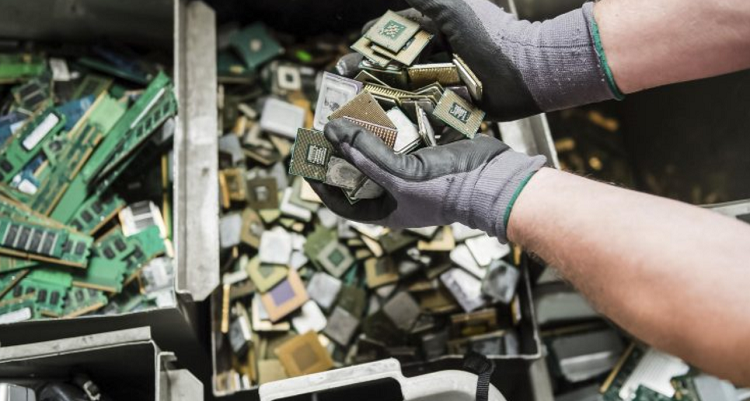Electronic devices are an essential part of modern life, continually evolving to meet our needs. From televisions to laptops, smartphones, and appliances, electronic devices are constantly changing. This rapid innovation leads to an increase in electronic waste, which poses significant environmental challenges. Electronic recycling is crucial for promoting sustainability and reducing the negative effects of e-waste. meundies.org informational site emphasizes the importance of making mindful choices, recycling electronics plays a vital role in safeguarding our planet for future generations. By participating in e-waste recycling programs, individuals and businesses can contribute to a sustainable future.
Table of Contents
1. Reduce Landfill Waste
Electronic recycling is an important strategy for managing e-waste, and reducing the amount that ends up on landfills. Electronics disposed of in landfills may have serious environmental consequences. This includes soil and water contamination by hazardous substances. Discover key insights at Casetify on responsible electronic recycling methods to reduce e-waste and protect the environment.
Recycling is a good idea
- Landfill Diversion : Recycling electronics can help divert waste away from landfills and reduce the amount of harmful materials which would otherwise contribute towards environmental pollution.
- Recycling helps to extend landfill life by keeping e-waste away from landfills. This reduces the need for additional landfills.
Why it Matters: It is important to minimize landfill waste in order to prevent environmental degradation and preserve land for future generations.
2. Conserving Natural Resources
Valuable resources including metals, polymers, and rare earth elements are used to make electronic devices. When electronic waste, or electronic garbage, is recycled appropriately, these resources can be reused and utilized again. As a result, fewer raw resources are required.
Resource Conservation Benefits:
- Recycling electronics can recover valuable materials like silver, gold and copper that can be used to create new products.
- Recycling reduces mining impact: Recycling reduces the demand for mines, which can lead to habitat destruction and environmental damages.
Why it matters: Conservation of natural resources protects ecosystems and reduces environmental impacts associated with resource extraction.
3. Reducing Energy Consumption
Recycling electronics can often require less energy than producing new electronic devices using raw materials. This energy reduction helps to reduce greenhouse gas emissions, and combat climate change.
Recycling can help you save energy.
- Reduced Production Costs – Recycling reduces energy required for manufacturing. This in turn results in lower production costs.
- Reduced Carbon Footprint – By using recycled material, manufacturers reduce their carbon footprint. They also contribute to a healthier environment.
Why it Matters: It is important to reduce energy consumption and greenhouse gasses emissions in order to combat climate change and promote a sustainable future.
4. Preventing pollution and health risks
Electronic devices can contain harmful substances like lead, mercury and cadmium. If not managed properly, these materials can cause harm. Recycling e-waste helps to safely dispose of toxic materials and prevent pollution.
Pollution Prevention Benefits:
- Safe Disposal: Recycling facilities certified by the EPA ensure that hazardous wastes are handled and disposed according to environmental regulations.
- Recycling properly reduces toxic exposure for humans and wildlife.
Why it Matters: Preventing pollution and protecting public health are essential for maintaining a sustainable and safe environment.
5. Circular Economy: Promoting it
Electronic recycling is a key component of the circular economy concept, which promotes materials being continuously repaired, recycled, and reused rather than being thrown away. This approach reduces waste while maximizing the lifespan of materials.
Circular Economy Benefits
- Resource Efficiency: Recycling materials is reintegrated in the production cycle to reduce the need for virgin resources.
- Circular economy: This promotes sustainable growth by encouraging responsible consumption, production and production practices.
Why It Matters : A circular economy can help create a world that is more resource-efficient and sustainable.
Join the Movement Towards Sustainability
Electronic recycling is an important component of sustainability. It helps reduce waste, conserves resources, lowers energy consumption and protects public health. Participating in responsible eWaste Management will help you to contribute to a more sustainable future, and to the transition to circular economy.
Are you ready to have a positive effect on the environment? Call eCycle Florida to find out more about our recycling services. We can help you responsibly recycle your old electronic devices and contribute to a more sustainable future. Contact us now to arrange your e-waste pick-up or drop-off. Be part of the solution for environmental challenges.
Steven Elia, Co-Founder and Director of Recycling at eCycle Florida, wrote this post. eCycle Florida, a R2 Certified electronics recycler in Florida, is eCycle Florida. Our processes and procedures ensure that your electronics are destroyed and recycled properly. eCycle Florida offers Pinellas County electronic recycling.


